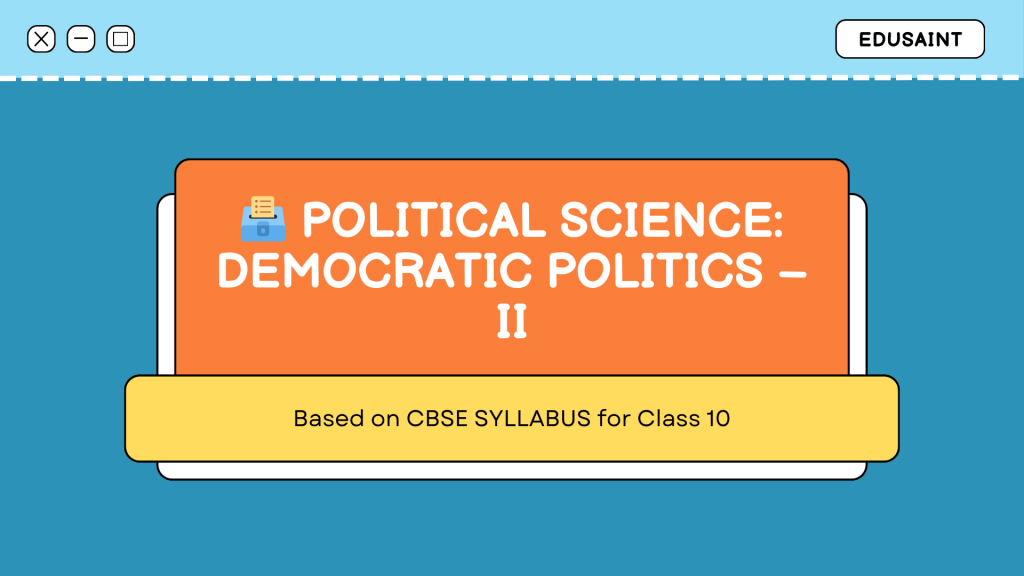🗳️ Class 10 Political Science:Democratic Politics

Explore how democracies work in practice—power sharing, federalism, the role of gender, religion & caste, political parties, and how we measure the outcomes of democracy. Built for NCERT/CBSE Class 10 with crisp notes, activities, and quizzes.
📘 NCERT-aligned🧭 Case studies: India, Belgium, Sri Lanka📝 MCQs & practice sets🎯 Exam-oriented
🎯 Learning Goals
- ⚖️ Power Sharing: Explain why power sharing is vital for unity & stability; compare Belgium & Sri Lanka; relate to India.
- 🏛️ Federalism: Infer how federalism is practiced in India; analyse policies/politics that strengthened it.
- 🧑🤝🧑 Gender, Religion & Caste: Examine roles/differences; judge which expressions of social diversity are healthy in a democracy.
- 🏷️ Political Parties: Understand how parties contest elections; know voter rights & duties; examine purpose/number of parties.
- 📈 Outcomes of Democracy: Evaluate success via governance quality, economic well-being, inequality, social differences, conflict, freedom & dignity.
🧩 How You’ll Learn
- 🗺️ Concept maps & graphic organisers for quick revision
- 🎥 Short explainer videos + 🧪 activity prompts
- 📝 Topic-end MCQs, assertion-reason, case-based & competency questions
- 🧠 Real-world case studies (India 🇮🇳, Belgium 🇧🇪, Sri Lanka 🇱🇰)
🧾 What’s Included
- 📚 Chapter-wise lessons
- 📂 Downloadable notes & summary sheets
- 🧩 Quizzes with instant feedback
- 🏁 Unit tests & cumulative practice
👥 Who Is This For?
- 🧑🎓 Class 10 students (CBSE/NCERT)
- 👩🏫 Teachers seeking structured, activity-based content
- 🧭 Learners aiming for high-retention, exam-ready prep
❓ FAQs
This course aligns with NCERT Class 10 Political Science (Democratic Politics – II) and is suitable for CBSE exams.
Yes—MCQs, assertion-reason, case-based questions, and unit tests with explanations.
Yes—Belgium, Sri Lanka, and India, with comparisons for power sharing and federalism. Can teachers reuse the visuals?
Course Content
3 Topics
4 Topics
4 Topics
3 Topics

